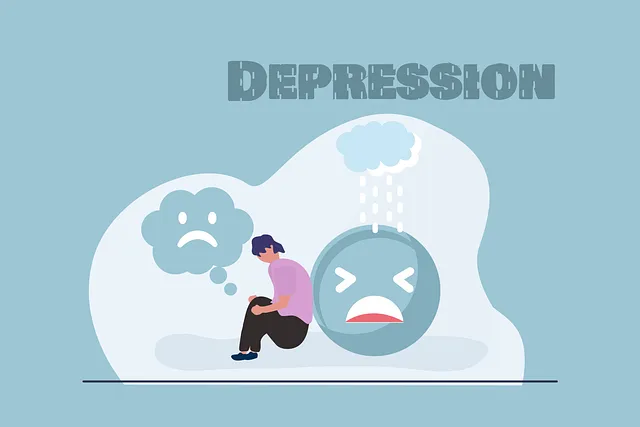Superior Kaiser Permanente psychiatry evaluates mental wellness programs through a blend of quantitative and qualitative methods, including surveys tailored to stress and emotional well-being, focus groups, and patient interviews. Risk Management Planning ensures safety while Mindfulness Meditation practices enhance program effectiveness. Long-term success is measured by retention rates, improvements in symptoms and quality of life, with regular assessments guiding adjustments to policy and advocacy efforts for optimal participant outcomes.
Mental wellness programs require robust evaluation methods to ensure their effectiveness. This article explores key strategies for assessing the impact of such initiatives at a leading healthcare provider, the Superior Kaiser Permanente psychiatry department. We delve into three critical aspects: assessing program impact through metrics and surveys, understanding stakeholder feedback from patients and staff, and measuring long-term success via retention and outcome assessments. By adopting these methods, mental wellness programs can achieve superior outcomes and improve patient care.
- Assessing Program Impact: Metrics and Surveys
- Stakeholder Feedback: Voices of Patients, Staff
- Long-term Success: Retention and Outcome Measures
Assessing Program Impact: Metrics and Surveys

Evaluating the impact of a mental wellness program is a multifaceted process that goes beyond simple satisfaction surveys. At Superior Kaiser Permanente psychiatry, we employ a range of metrics to assess not just the short-term effects but also the lasting transformations in our patients’ mental health journeys. These include quantitative measures like reduction in symptom severity scores and qualitative assessments through in-depth interviews and focus groups. By combining these approaches, we gain insights into the program’s effectiveness, identifying areas that resonate strongly with participants and those that need refinement.
One powerful tool within our arsenal is the use of surveys tailored to specific aspects of mental wellness, such as stress levels, emotional well-being, and coping mechanisms. We integrate techniques like Mindfulness Meditation and Conflict Resolution Techniques into these surveys to understand how they contribute to overall program success. Additionally, Risk Management Planning for Mental Health Professionals plays a crucial role in our evaluation by ensuring that potential risks are identified and mitigated, fostering a safe and supportive environment that enhances the impact of the programs we offer.
Stakeholder Feedback: Voices of Patients, Staff

The evaluation of mental wellness programs within healthcare organizations, like Superior Kaiser Permanente psychiatry, cannot overlook the insights from stakeholders—patients and staff alike. Patient feedback is invaluable in understanding the impact and effectiveness of these programs. Through surveys, interviews, or focus groups, patients can share their experiences, highlighting aspects such as accessibility, quality of care, and the overall support they receive. This feedback is crucial for identifying areas of improvement and ensuring that services align with patient needs, especially when addressing complex issues like trauma.
Staff perspectives are equally critical in program evaluation. Mental wellness coaching programs development often relies on their implementation and day-to-day interactions. Staff can provide valuable insights into the integration of these programs within existing healthcare practices, including their impact on workflow and patient outcomes. Additionally, risk management planning for mental health professionals is enhanced by staff feedback, as it helps identify potential challenges or risks associated with delivering mental wellness services and ensures a supportive work environment.
Long-term Success: Retention and Outcome Measures

Evaluating the long-term success of mental wellness programs is paramount to understanding their true impact and effectiveness. Retention rates serve as a crucial indicator, showcasing how many participants continue engaging with the program over an extended period. Superior Kaiser Permanente psychiatry services, for instance, often emphasize high retention rates as a sign of successful interventions. By tracking participant adherence, researchers can gauge the appeal and relevance of the program’s offerings.
Beyond retention, outcome measures play a vital role in assessing long-term success. These metrics include evaluating improvements in mental health symptoms, overall well-being, and quality of life. Through regular assessments and follow-up studies, it becomes possible to determine whether the program’s initiatives lead to sustainable positive changes. This data informs adjustments to Mental Wellness Journaling Exercise Guidance, Mental Health Policy Analysis and Advocacy, ensuring that programs remain aligned with the evolving needs of participants.
Evaluating mental wellness programs is essential for ensuring their effectiveness and long-term success, especially in renowned healthcare organizations like Superior Kaiser Permanente. By employing a multifaceted approach that includes assessing program impact through metrics and surveys, gathering stakeholder feedback from patients and staff, and tracking retention rates alongside outcome measures, these initiatives can be fine-tuned to better serve the community. This holistic evaluation method not only identifies areas for improvement but also reinforces the positive impact of Superior Kaiser Permanente’s psychiatry services.






